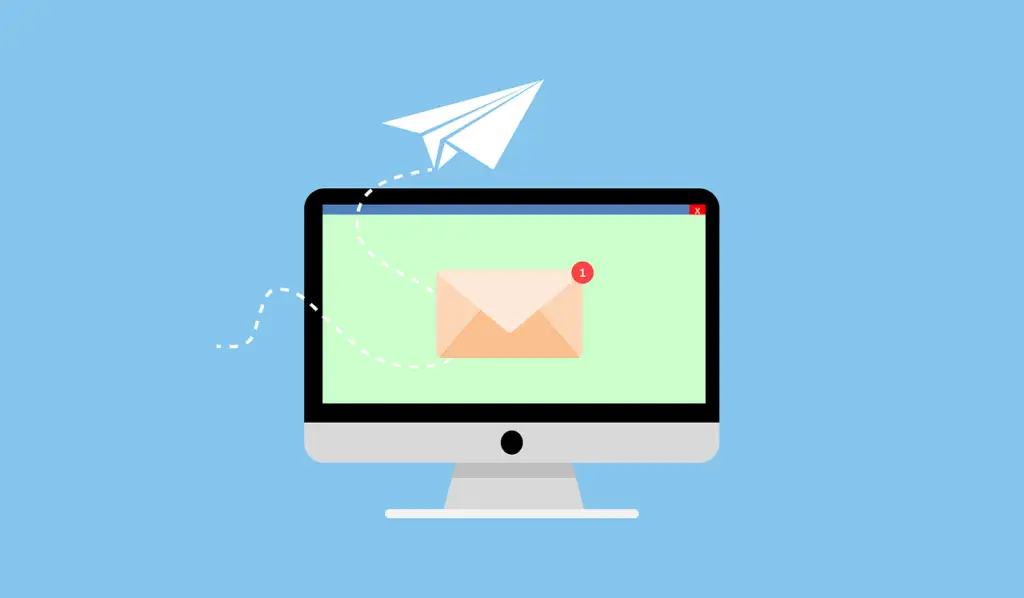Email Marketer’s Guide: Success Strategies
For Email Marketer, understanding the evolution of Email Marketing in the industry is crucial to business growth and sending good emails. From its inception in the 1970s to becoming a cornerstone of digital communication today, email marketing has transformed how businesses engage with their audience. This transformation has been fueled by advancements in technology, changing consumer behaviors, and the rise of personalized marketing strategies.

Key Takeaways
- Email marketing specialists play a crucial role in creating targeted and engaging email campaigns.
- Email marketing remains a valuable tool for businesses to connect with their audience, drive conversions, and build their email list.
- SEO content writing in emails can improve open rates and engagement with your audience.
- Implement strategies like personalization, segmentation, and automation for effective email marketing campaigns.
- Measuring success through metrics like open rates, click-through rates, and conversion rates is essential for optimizing email campaigns in the competitive market.
- Stay ahead by anticipating and overcoming common challenges such as deliverability issues and email fatigue in email marketing.
Defining Email Marketing Specialists
Role and Importance
Email marketing specialists play a pivotal role in digital marketing strategies by directly engaging with customers through personalized content. They are essential for brand growth, nurturing customer relationships, and driving conversions with strategic email marketing campaigns. Expert email marketing specialists can significantly impact a company’s bottom line by increasing customer retention rates and acquiring new leads.
Email marketing is crucial for boosting ROI as it offers a high return on investment compared to other digital marketing channels. With personalized messaging and targeted campaigns, email marketers can achieve higher conversion rates and increased sales revenue using email marketing strategies.
Key Responsibilities
Email marketing specialists are responsible for creating and monitoring email campaigns, ensuring that they align with the brand’s goals and target audience preferences. They focus on optimizing email design to enhance user experience and drive engagement. Tracking and analyzing campaign performance metrics are vital tasks to identify successful strategies and areas for improvement in future campaigns.
- Creating compelling email content
- Segmenting email lists for targeted campaigns
- A/B testing subject lines and call-to-action buttons
Skills Required
Essential skills for email marketing specialists include campaign monitoring, design optimization, and data analysis to measure the effectiveness of email campaigns accurately. Effective communication is crucial for conveying brand messages clearly, while attention to detail ensures error-free campaigns. Creativity plays a significant role in crafting engaging email content that resonates with recipients.
- Campaign monitoring
- Design optimization
- Data analysis techniques

The Value of Email Marketing
Boosting SEO
Email marketing complements SEO efforts by increasing online visibility through regular communication with subscribers. Email campaigns play a crucial role in driving traffic to websites, boosting overall SEO performance. Integrating relevant keywords strategically in email content can significantly improve search engine rankings.
Enhancing Customer Engagement
Email marketing specialists nurture positive customer relationships by delivering engaging newsletters regularly. Personalized content tailored to individual preferences enhances customer engagement and fosters brand loyalty. Lead nurturing initiatives, such as targeted email sequences, play a vital role in building long-term customer relationships.
Increasing Conversion Rates
Expert email marketers contribute to increasing conversion rates by delivering compelling content that resonates with the audience. Crafting effective CTAs in email campaigns prompts users to take desired actions, leading to higher conversion rates. Targeted email content that addresses specific customer needs and pain points drives conversions effectively.
SEO Content Writing for Emails
Keyword Integration
Effective keyword integration is crucial in email marketing to boost visibility and engagement. By strategically incorporating relevant keywords, marketers can enhance open rates and click-throughs. A well-placed keyword in the subject line can significantly impact email performance.
Incorporating strategic keywords throughout the email content can capture the reader’s attention and prompt action. When recipients see familiar terms in the subject line or body of the email, they are more likely to engage with the message. Utilizing keyword-rich subject lines can directly influence the success of an email campaign.
Crafting Compelling Subject Lines
Crafting compelling subject lines is essential for grabbing recipients’ attention amidst a cluttered inbox. Engaging subject lines play a pivotal role in increasing open rates and driving conversions. Marketers should focus on creating concise, intriguing subject lines that entice readers to open the email.
Subject lines serve as the first point of contact with recipients, determining whether an email gets opened or ignored. By incorporating powerful language and appealing to the recipient’s interests or pain points, marketers can improve email engagement. A well-crafted subject line sets the tone for the entire email content.
Optimizing Email Content
Optimizing email content for various devices is essential to ensure a seamless user experience across platforms. Responsive design plays a key role in adapting emails to different screen sizes, enhancing readability and engagement. Well-structured email content with clear calls-to-action can drive higher click-through rates and conversions.
To cater to diverse audiences accessing emails on smartphones, tablets, or desktops, marketers must prioritize mobile optimization. Creating visually appealing and easy-to-navigate emails improves user satisfaction and encourages interaction with the content. A user-friendly layout and optimized content contribute to overall campaign success.
Strategies for Effective Email Marketing
Personalization Techniques
Personalizing email content enhances audience engagement and fosters a connection with recipients. By tailoring emails to individual preferences, marketers can increase open rates and drive conversions. Dynamic content allows for customized messages based on user behavior and interests.
Segmenting email lists is crucial for delivering targeted campaigns that resonate with specific audience segments. This practice ensures that recipients receive relevant content, leading to higher engagement rates and improved customer satisfaction. Personalized recommendations, such as product suggestions based on past purchases, further enhance the effectiveness of segmented email campaigns.
Segmentation Tactics
A/B testing plays a vital role in optimizing email campaign performance by allowing marketers to compare different versions of emails and determine the most effective strategies. Testing elements like subject lines, call-to-action buttons, and visuals can provide valuable insights into what resonates best with the audience. Through A/B testing, marketers can refine their email content to improve engagement metrics such as click-through rates and conversion rates.
A/B Testing Methods
When it comes to emails, A/B testing involves sending different versions of your campaign to separate groups of subscribers. The main aim is to figure out which version of the campaign performs the best by comparing the results.

Measuring Success in Email Marketing
Key Performance Indicators
Key performance indicators (KPIs) are crucial for measuring the success of email marketing campaigns. Open rates, click-through rates, and conversions are essential metrics to track. These KPIs provide insights into how well emails are performing.
- Open rates
- Click-through rates
- Conversions
Analyzing Email Metrics
Analyzing email metrics is vital to understand campaign performance. Bounce rates and unsubscribe rates offer valuable insights. By interpreting these metrics, marketers can identify areas for improvement.
- Bounce rates
- Unsubscribe rates
Adjusting Strategies Based on Data
Data-driven insights play a significant role in refining email marketing strategies. Adapting strategies based on data analysis can enhance campaign effectiveness. Continuous optimization is key to achieving email marketing goals.
- Utilizing data insights
- Refining strategies
- Continuous optimization
Overcoming Common Challenges
Avoiding Spam Filters
Avoid common triggers like excessive use of all caps or multiple exclamation marks to prevent emails from being marked as spam. Maintaining a good sender reputation is crucial for avoiding spam filters. Utilize authentication protocols such as SPF, DKIM, and DMARC to ensure email deliverability.
Managing Subscriber Lists
Regularly update and purge email lists to maintain list hygiene and improve engagement rates. Managing subscriber preferences helps in delivering personalized content and enhancing user experience. Segmentation allows for targeted messaging based on subscriber interests and behaviors.
Creating Engaging Content
Creating visually appealing email content is essential for capturing audience attention. Incorporate storytelling techniques to make the content more engaging and relatable. Use multimedia elements like images, videos, and GIFs to enhance the overall appeal of the email.
Future Trends in Email Marketing
AI and Automation Advancements
AI and automation tools are revolutionizing email marketing, streamlining processes and enhancing efficiency. By utilizing AI, marketers can achieve personalization at scale, tailoring content based on user behavior. Automation plays a crucial role in ensuring timely and relevant communication with subscribers, improving overall campaign performance.
- Pros:
- Increased efficiency
- Enhanced targeting capabilities
- Cons:
- Initial setup complexity
- Risk of over-automation
Interactive Email Elements
Interactive elements such as polls and quizzes bring a dynamic touch to email content, boosting engagement levels significantly. Incorporating these elements can drive higher click-through rates and encourage subscribers to interact with the brand actively. Examples include clickable images, surveys, and gamified content.
- Polls for gathering feedback
- Quizzes for interactive content
Privacy and Personalization Balance
Finding the right balance between personalization and privacy is crucial in email marketing. Transparency regarding data usage instills trust among subscribers, leading to stronger customer relationships. Adhering to data protection regulations like GDPR ensures that customer data is handled responsibly, maintaining credibility and loyalty.
- Building trust through transparency
- Compliance with data protection laws

Case Studies and Success Stories
Successful Campaigns Overview
Successful email marketing campaigns often leverage personalized content, compelling subject lines, and clear call-to-action buttons. For instance, a campaign by XYZ Company saw a 300% increase in open rates due to personalized recommendations.
These campaigns focus on segmenting the audience based on demographics and behaviors to deliver targeted content. By analyzing data and metrics, marketers can optimize campaigns for better engagement and conversions. Creativity plays a crucial role in crafting unique campaigns that resonate with the audience.
Lessons Learned
From past experiences, it’s evident that consistent testing and analysis are key to improving email marketing performance. Learning from failures helps marketers refine their strategies and avoid repeating mistakes. Embracing a culture of experimentation fosters growth and innovation in email campaigns.
Strategies Applied
Innovative strategies like dynamic content insertion and automated workflows have proven successful in boosting email marketing performance. By incorporating interactive elements such as videos or quizzes, marketers can enhance user engagement. The decision-making process involves thorough research, A/B testing, and feedback analysis to ensure campaign effectiveness.
Final Remarks
You’ve now explored the world of email marketing specialists, understanding the value they bring to businesses. From SEO content writing to effective strategies and overcoming challenges, you’ve gained insights into this dynamic field. By measuring success, analyzing trends, and delving into case studies, you’re well-equipped to navigate the realm of email marketing with confidence.
As you continue your journey in email marketing, remember to apply these learnings strategically. Stay updated on emerging trends, adapt your strategies, and always measure your success. By implementing these practices, you can elevate your email marketing efforts and achieve remarkable results. Keep refining your skills and embracing new opportunities in this ever-evolving landscape.
Frequently Asked Questions
What is the role of an Email Marketing Specialist?
An Email Marketing Specialist is responsible for creating and implementing email campaigns to promote products or services, engage with customers, and drive conversions. They focus on crafting compelling content, optimizing email deliverability, and analyzing campaign performance.
How can businesses measure success in Email Marketing?
Businesses can measure the success of their email marketing efforts by tracking key metrics such as open rates, click-through rates, conversion rates, and ROI. Analyzing these metrics provides valuable insights into the effectiveness of email campaigns and helps in making data-driven decisions.
What are some common challenges faced in Email Marketing?
Common challenges in email marketing include low open rates, high unsubscribe rates, deliverability issues, and maintaining engagement with subscribers. Overcoming these challenges requires continuous testing, optimizing content for relevance, and adhering to best practices in email marketing.
Why is SEO Content Writing important for Emails?
SEO content writing for emails helps improve the visibility of email campaigns in search engines and increases the chances of reaching a wider audience. By incorporating relevant keywords, optimizing subject lines, and creating valuable content, businesses can enhance their email marketing performance.
What are some future trends in Email Marketing to watch out for?
Future trends in email marketing include increased personalization through AI technology, interactive email experiences, mobile optimization, and a stronger focus on privacy and data protection. Adopting these trends can help businesses stay ahead in the competitive landscape of email marketing.
Our Services
Categories
- Affiliate Marketing(4)
- Amazon Storefront(7)
- app development(17)
- Artificial Intelligence (AI)(49)
- Content Marketing(33)
- Copywriting(8)
- Cyber Security(5)
- Delivery Serives(5)
- Design(5)
- Digital Marketing(85)
- E-Commerce(67)
- Facebook Ads(7)
- Google Ads(5)
- IT Consulting(9)
- Jobs(12)
- Marketing(10)
- Programming(11)
- Search Engine Optimization(62)
- Shopify(9)
- Social Media(18)
- Technology(69)
- Uncategorized(1)
- Walmart(3)
- Web Development(16)
- Website(10)
- WordPress(4)